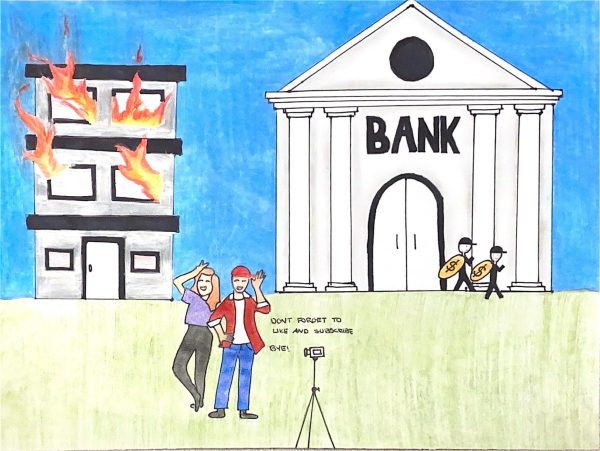Nationwide, gifted programs need reform, changes made
As we see the outcomes of early gifted education, public education can use this information to better shape the future of these programs.
From a young age, I have been labeled “gifted.” Luckily, I go to school in a district that took the time to teach me what that label meant and offered me enrichment opportunities to help me grow to my full potential.
Unfortunately, many students across the country have not been given the same experience. As a whole, gifted education in this country has a lot of improvements to make, both with gifted students and the inclusion of their teachers and classmates.
One of the most glaring issues with gifted education is that it’s not always explained to the student or the people around them. Oftentimes, it seems as though schools will just pull the gifted students out of their classes for enrichment activities with no context.
From an outsider’s perspective, these activities may seem to be pure fun and games.
Things like puzzles, mind games and occasional field trips can sometimes create the false perspective that gifted children are more deserving of these opportunities or that these are a sort of reward.
The fact of the matter is that a gifted student is not “smarter” or “better” than any other child. Being gifted simply means that they have a higher than average IQ level, causing their brains to function differently than those of their peers.
This was something that I understood growing up because it was explained to me, but most of my other classmates were not given that same courtesy.
As a result, I felt a lot of social isolation from being in the program, as well as judgment from my peers because I was being treated differently than they were.
Simply because of me being in the program, there were classmates of mine who didn’t even want to try to be my friend.
They assumed, without ever talking to me, that I thought I was better than them because of the alternative treatment that I received.
Hearing stories shared online from other gifted students across the country, it’s clear that many others have experienced similar situations. Many times, gifted students are praised by teachers in elementary school, simply because of their title, which causes a lot of social divide between them and their classmates.
When these kids grow up being told that they were “so smart,” it becomes a brutal blow to the ego when they come to high school to realize that they aren’t “special.”
At this point, expectations for them have been inflated and, as school becomes more difficult and they begin to struggle, many may develop what’s called imposter syndrome.
According to Psychology Today, this is when one begins to feel as though they do not deserve their own achievements and “the high esteem in which they are, in fact, generally held.”
While many elementary level teachers want to make every child feel special, this extra attention with the added, and perhaps underexplained, title of “gifted” ends up putting a lot of pressure on the gifted child in question.
I can recall quite a few times where a teacher used terms like “smart” or “advanced” as synonymous with “gifted.”
This was done with good, encouraging intentions, yet spiraled into me, along with many other gifted students, developing a toxic mindset of “I have to get all A’s because I’m supposed to be ‘smart’” or “I have to take all honors classes because my brain is supposed to be ‘advanced.’”
And these mindsets don’t show up overnight. They are a result of sometimes 10+ years of the acute molding and shaping that these words do.
If this can happen to kids in Souderton, where there is that added care of explanation and validation that my own gifted advisors have given me, one can only imagine how much worse results can be when that isn’t the case.










